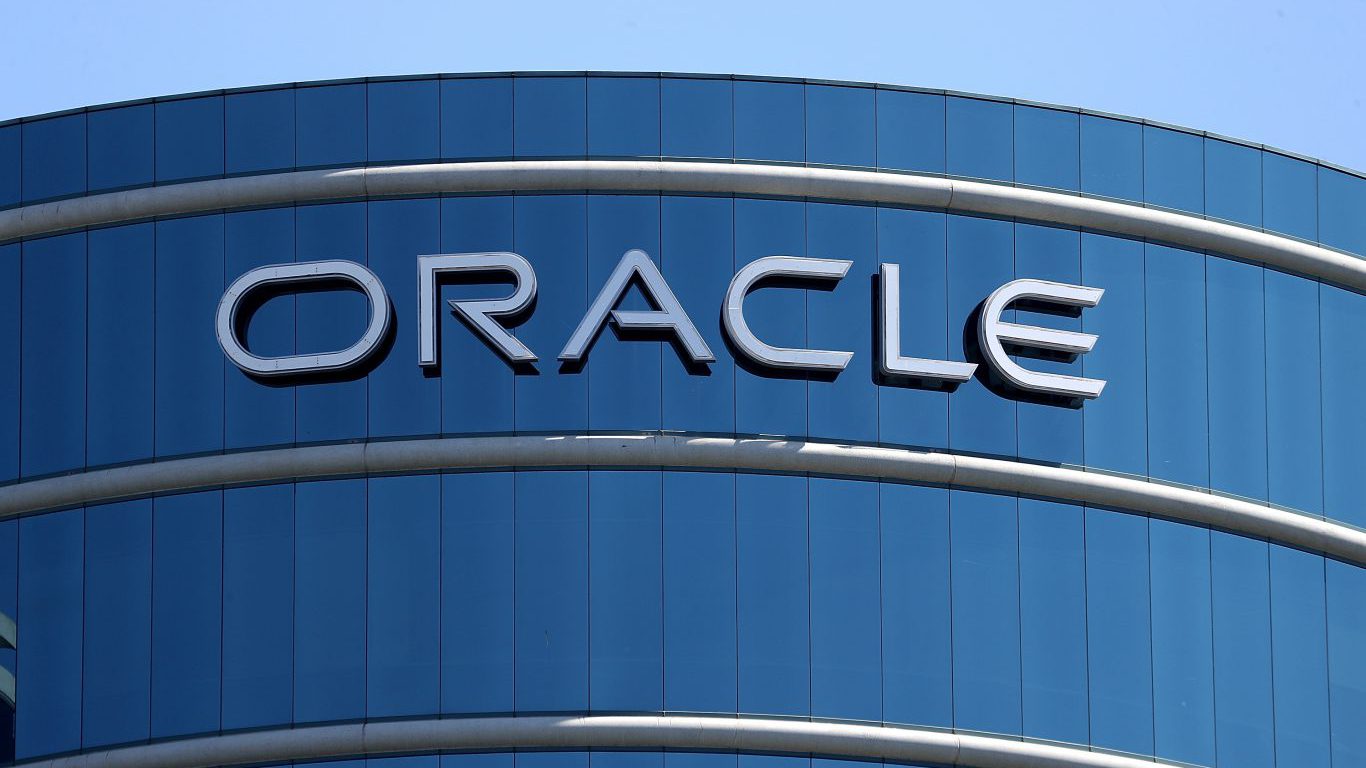Technology
Why Old-School Dividend-Paying Tech Stocks Are Outstanding 2022 Ideas

Published:

With just a few trading sessions left in 2021, it looks like the S&P 500 will outperform the technology-heavy Nasdaq. With Apple closing in on a $3 trillion market cap, and red-hot chip stocks like Nvidia seemingly going higher every day, what is the best strategy for growth investors for 2022? With many pundits across Wall Street expecting just single-digit gains in 2022, one answer may surprise investors now.
With price-to-earnings median multiples near the highest levels since the dot-com crash of 1999 and 2000, it may make sense to assess some of the legacy old-school technology stocks, especially those that pay a dependable dividend. We screened our 24/7 Wall St. research database looking for value and dividends and found five stocks, all rated Buy at major Wall Street firms, that look like solid 2022 ideas.
[in-text-ad]
It is important to remember that no single analyst report should be used as a sole basis for any buying or selling decision.
Investors who are more conservative may want to consider this mega-cap tech leader. Cisco Systems Inc. (NASDAQ: CSCO) designs, manufactures and sells internet protocol (IP) based networking products and services related to the communications and information technology industry worldwide.
It provides switching products, including fixed-configuration and modular switches, and storage products that provide connectivity to end users, workstations, IP phones, wireless access points and servers, as well as next-generation network routing products that interconnect public and private wireline and mobile networks for mobile, data, voice and video applications.
Cisco’s cybersecurity products give clients the scope, scale and capabilities to keep up with the complexity and volume of threats. Putting security above everything helps corporations innovate while keeping their assets safe.
Shareholders receive a 2.31% dividend. Credit Suisse has a $73 target price on the Cisco Systems stock, and the consensus target is $62.63. Shares ended Wednesday at $63.96.
This blue-chip giant still offers investors an incredibly solid entry point. International Business Machines Corp. (NYSE: IBM) is a leading provider of enterprise solutions, offering a broad portfolio of information technology (IT) hardware, business and IT services, and a full suite of software solutions. The company integrates its hardware products with its software and services offerings to provide high-value solutions.
Analysts have cited the company’s potential in the public cloud as a reason for a positive outlook going forward, and the cloud has proved to be big in past earnings reports.
IBM stock investors receive a 4.92% dividend. The $172 Jefferies price target compares with a $145.17 consensus target and Wednesday’s closing print of $133.35.
This legacy leader in semiconductors has continued working hard to focus more on Internet of Things and data center cloud spending. Intel Corp. (NASDAQ: INTC) designs, manufactures and sells integrated digital technology platforms worldwide.
Intel’s platforms are used in various computing applications, comprising notebooks, two-in-one systems, desktops, servers, tablets, smartphones, wireless and wired connectivity products, wearables, retail devices and manufacturing devices, as well as for retail, transportation, industrial, buildings, home use and other market segments.
Shareholders receive a 2.68% dividend. Credit Suisse’s $80 price target is well above the $55.02 consensus target. Intel stock closed at $51.82 on Wednesday.
[in-text-ad]
This top software stock has backed up recently and is offering an attractive entry point. Oracle Corp. (NYSE: ORCL) develops, manufactures, markets, sells, hosts and supports database and middleware software, application software, cloud infrastructure, hardware systems and related services worldwide.
The company licenses its Oracle Database software to customers, which is designed to enable reliable and secure storage, retrieval and manipulation of various forms of data. Its Oracle Fusion Middleware software aims to build, deploy, secure, access and integrate business applications, as well as automate their business processes.
Oracle recently announced that it would acquire Cerner, a leading provider of digital information systems used within hospitals and health systems to enable medical professionals to deliver better healthcare to individual patients and communities. The all-cash tender offer has approximately $28.3 billion in equity value.
Shareholders receive a 1.44% dividend. Credit Suisse team has set a price target is $115. The consensus target for Oracle stock is $102.64, and the share price was last seen at $88.21.
This old-school legacy semiconductor tech company offers solid value at current levels and is a great pick for more conservative investors. Texas Instruments Inc. (NASDAQ: TXN) is a broad-based supplier of semiconductor components, ranging from digital signal processors to high-performance analog components, to digital light-processing technology and calculators.
Some 65% of the company’s sales are exposed to the well-diversified, business-to-business industrial, automotive, communications infrastructure and enterprise markets. While business from those sectors, especially automotive, could suffer in the near term, the analyst feels the solid dividend should support the shares. The company is also a big Apple supplier, so the long-term outlook for this venerable leader makes it a safer bet for investors with less risk tolerance.
Investors receive a 2.41% dividend. The BofA Securities price target for Texas Instruments stock is $255. The consensus target is $205.18, and shares closed most recently at $190.81.
These five legacy tech leaders have been around for decades. While they may not have the stunning growth potential some of the momentum tech stocks have, they do have one thing that makes it easier for investors to sleep at night, and that’s dependability and staying power. In addition, investors versed in covered call writing can generate additional revenue and total return with these stocks.
Thank you for reading! Have some feedback for us?
Contact the 24/7 Wall St. editorial team.